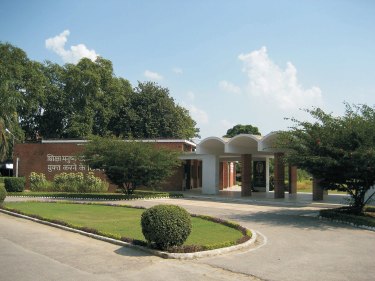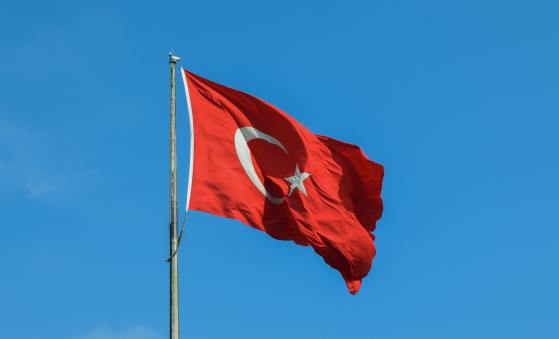
The Supreme Court on Friday quashed multiple FIRs registered in Uttar Pradesh against the vice chancellor and officials of Sam Higginbottom University of Agriculture, Technology and Sciences (SHUATS), Prayagraj, along with staff of Broadwell Christian Hospital and the Evangelical Church of India, Fatehpur, ruling that the criminal proceedings were based on “completely incredulous material” and amounted to harassment of innocent persons.
A bench comprising Justice JB Pardiwala and Justice Manoj Misra delivered the verdict in a batch of appeals and writ petitions challenging six FIRs lodged between April 2022 and December 2023 under the Uttar Pradesh Prohibition of Unlawful Conversion of Religion Act, 2021, along with various provisions of the Indian Penal Code.
“The criminal law cannot be allowed to be made a tool of harassment of innocent persons, allowing prosecuting agencies to initiate prosecution at their whims and fancy, on the basis of completely incredulous material,” the court observed in its 158-page judgment delivered on 17 October 2025.
The proceedings centred on allegations that Dr Rajendra Bihari Lal, vice chancellor of SHUATS, along with staff of Broadwell Christian Hospital (also known as Mission Hospital) and the Evangelical Church of India in Hariharganj, Fatehpur, were involved in mass religious conversions to Christianity.
The first FIR (No. 224/2022) was registered on 15 April 2022, following a complaint by Himanshu Dixit, vice president of Vishwa Hindu Parishad. The complaint alleged that 90 Hindus were being converted at the Evangelical Church of India in Fatehpur on 14 April 2022, which was Maundy Thursday, a day of religious significance for Christians. The FIR named Pastor Vijay Masih of the church and 35 other named persons, along with 20 unknown accused. Several staff members of Broadwell Christian Hospital were also named as accused.
The Supreme Court found this first FIR to be legally defective as it was lodged by a third party rather than a victim. Under Section 4 of the UP Conversion Act as it stood before its 2024 amendment, only an aggrieved person or their relatives could file an FIR for unlawful conversion. The court held that this restriction was a legislative safeguard to prevent vexatious complaints.
“The intention of the legislature in prescribing a list of persons competent to lodge an FIR for contravention of the Act was to restrict the manner in which the prosecution under the UP Conversion Act could be initiated,” the judgment stated. The court rejected the Attorney General’s argument that the general law under CrPC should prevail over the UP Act to allow FIRs by third parties, holding that the special law would prevail.
Following the first FIR, four more FIRs were registered in January 2023, nine months after the alleged incident. These were lodged by persons claiming to be victims of the mass conversion. However, the Supreme Court found serious credibility issues with these subsequent FIRs and the investigation.
The court noted that witness statements were “cyclostyled” or mechanically reproduced. Three affidavits submitted by alleged victims to the Superintendent of Police on 24 May 2022 were found to be identical except for the names of the deponents. The e-stamp papers on these affidavits bore time stamps of 10:54 am, 10:55 am and 10:52 am respectively, indicating they were prepared in a mechanical manner.
In one glaring error highlighted by the court, both Sanjay Singh and Pramod Kumar Dixit stated in their affidavits that their name in the Aadhaar card was changed from “Rajesh Kumar Dwivedi” to “Rajesh Kumar Samson”, though neither person was actually named Rajesh Kumar Dwivedi. “Nothing more is required to be said as regards the credibility of the affidavits submitted by the aforesaid three victim witnesses in light of the discrepancies that we have adverted to,” the court observed.
The court also found critical contradictions in witness statements. Virendra Kumar and Sanjay Singh, who later became complainants in FIR Nos 54/2023 and 55/2023 respectively, had given statements on 15 April 2022 during the investigation of the first FIR stating they were members of Vishwa Hindu Parishad who accompanied Himanshu Dixit to the church upon receiving information about conversions. Nine months later, they filed FIRs claiming they were victims of the mass conversion at the same event.
“The mere fact that the complainant in FIR No. 54/2023 had taken a complete U-turn from the statement he made during the course of investigation in FIR No. 224/2022, and more so that he, in his earlier statement, admitted having accompanied the informant in FIR No. 224/2022 makes it an easy guess as regards the circumstances in which multiple subsequent FIRs came to be registered,” the court stated.
The court examined the evidence collected during investigation, including videos and witness statements. It found that the videos showed only religious gatherings and Bible preaching. One video showed an accused person citing a Biblical verse: “Psalm 2:8 - Ask me, and I will make the nations your inheritance, the ends of the earth your possession.”
“We are at a loss to understand as to how such religious gathering could be found to be in contravention to the provisions of the law, when no direct attempt to allure or induce with a view to cause conversion could be traced,” the court observed.
The judgment stated: “We do not find from a reading of the UP Conversion Act that organisation of religious gatherings or doing charity work in the name of religion has also been made a criminal offence. No provision in the IPC prohibits such activities too.”
The court noted that witness statements recorded during investigation did not mention the alleged mass conversion incident. Several witnesses stated they received aid from an organisation called World Vision and attended meetings where household items were distributed, but none claimed to have been forcibly converted or to have been present at the alleged 14 April 2022 incident.
The court found that allegations of forged Aadhaar cards lacked credible documentary evidence. “In the absence of any material indicating that the Aadhaar cards gathered during search and seizure are forged and not updated ones, we find it difficult to assume the same,” the judgment stated. The court noted that no report from the authority responsible for issuing Aadhaar cards was obtained to prove forgery, nor were any offences under the Aadhaar Act added.
“Receiving foreign aid and carrying out charitable work, even in the name of religion, ipso facto is not a punishable offence under any of the legislations,” the court observed, noting that no irregularity in funding had been pointed out.
The court concluded: “It seems that the entire process of investigation was not an attempt to uncover the truth of the allegations, but rather to find ways to somehow substantiate the allegations levelled in the FIR.”
The Supreme Court quashed FIR Nos 224/2022, 47/2023, 54/2023, 55/2023 and 60/2023 along with all consequential proceedings.
Senior Advocates Siddharth Dave, Siddharth Agarwal, Rebecca M John, Mukta Gupta, CU Singh and advocate Vairawan AS appeared for the petitioners. Attorney General R Venkataramani and Additional Advocate General Garima Prashad appeared for the State of Uttar Pradesh.
Reacting to the judgment, Dr John Dayal, human rights activist and member of the National Integration Council, told Christian Today: “This is a brilliant judgment by the Pardiwala bench. It punches huge holes in the UP anti-conversion law, and by inference, in most similar laws.”
He highlighted the court’s observations on state interference: “The judges say the involvement and interference of the State authorities in the conversion procedure is conspicuous, with the District Magistrate having been legally obliged to direct a police enquiry in each case of intended religious conversion. The statutory requirement of making public the personal details of each person who has converted may require deeper examination to ascertain if such a requirement fits well with the privacy regime pervading the constitution.”
A senior advocate working on cases of Christians facing similar charges told Christian Today: “This is more than a verdict; it is an affirmation. A reminder that truth still prevails, and no oppressive law can silence the voice of faith. While we celebrate this significant outcome, our work remains unfinished. Hundreds remain falsely accused in Uttar Pradesh and eleven other states, and many others live in constant fear and suffering, their ministries and lives disrupted.”
The bench detagged FIR No. 538/2023 for separate consideration regarding allegations under IPC sections relating to attempt to murder and extortion, while quashing charges under the conversion law. The interim protection from arrest granted to the accused will continue.
The court had earlier granted interim protection from arrest to Dr Rajendra Bihari Lal and other officials in December 2023. During a hearing in May 2024, the court had orally observed that some parts of the UP law on religious conversions seemed to be violative of Article 25 of the Constitution.
Image used in this article can be found here.




